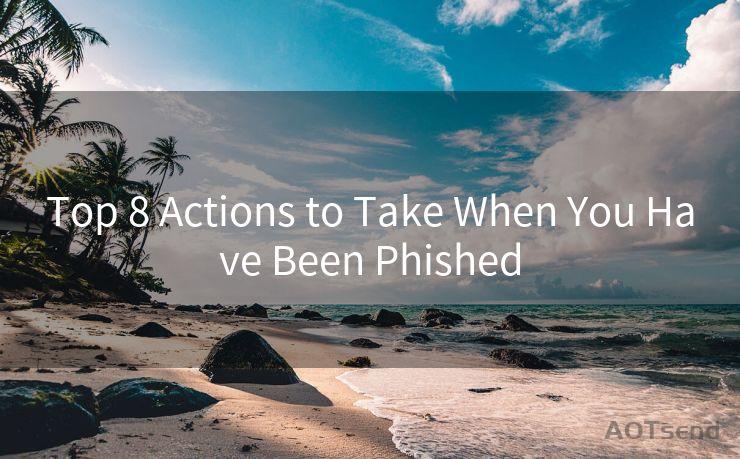Top 8 Actions to Take When You Have Been Phished




In the digital age, phishing attacks have become increasingly common, making it crucial to know how to respond if you fall victim to such a scam. Being "phished" refers to being tricked by a phishing attack, typically through emails or messages that appear legitimate but are designed to steal personal information. If you find yourself in this situation, here are the top eight actions to take immediately.
1. Disconnect from the Internet
The first step after realizing you've been phished is to disconnect your device from the internet. This prevents further data leakage or unauthorized access to your system.
2. Change Your Passwords
Immediately change all passwords, especially for accounts that may have been exposed during the phishing attack. Use strong, unique passwords and consider using a password manager for added security.
3. Contact Your Bank or Financial Institution
If you've entered any financial information, such as credit card details, during the phishing attack, contact your bank or financial institution immediately. Inform them of the potential security breach and request appropriate measures to secure your accounts.
4. Scan Your System for Malware
Run a comprehensive malware scan on your device to detect and remove any malicious software that may have been installed during the phishing attack. Ensure your antivirus software is up to date for maximum effectiveness.
🔔🔔🔔
【AOTsend Email API】:AOTsend is a Managed Email Service for sending transactional emails. Support Email Types: reminders, authentication, confirmations, notifications, verification codes, invoices, password resets, account activations, billing statements, two-factor authentication (2FA), and one-time passwords (OTP) emails, etc. $0.28 per 1000 Emails. 99% Delivery, 98% Inbox Rate.
You might be interested in:
Why did we start the AOTsend project, Brand Story?
What is a Managed Email API, How it Works?
Best 25+ Email Marketing Platforms (Authority,Keywords&Traffic Comparison)
Best 24+ Email Marketing Service (Price, Pros&Cons Comparison)
Email APIs vs SMTP: How they Works, Any Difference?
5. Report the Phishing Attempt
Reporting phishing attempts to the relevant authorities helps them track and shut down such scams. Provide all available information, including screenshots and email headers, to aid in the investigation.
6. Review Your Accounts for Unauthorized Activity
Check all your online accounts, especially those that may have been compromised, for any unusual or unauthorized activity. This includes changes to personal details, transactions, or login attempts.
7. Enable Two-Factor Authentication
To further secure your accounts, enable two-factor authentication (2FA) wherever possible. This adds an additional layer of security, requiring a second form of verification beyond just a password.

8. Learn from the Experience
Reflect on how the phishing attack happened and educate yourself on how to avoid such scams in the future. Be more vigilant when it comes to opening emails or messages from unknown sources and never provide sensitive information without verifying the source first.
In conclusion, falling victim to a phishing attack can be a stressful experience, but it's important to remain calm and take swift action. By following these top eight actions, you can minimize the damage and prevent further compromise of your personal information. Remember, prevention is always better than cure, so stay vigilant and don't let yourself be "phished" again!
Top 8 Actions to Take When You Have Been Phished - these steps are your guide to safety in the digital world. Stay safe, stay secure!




Scan the QR code to access on your mobile device.
Copyright notice: This article is published by AotSend. Reproduction requires attribution.
Article Link:https://www.mailwot.com/p997.html



